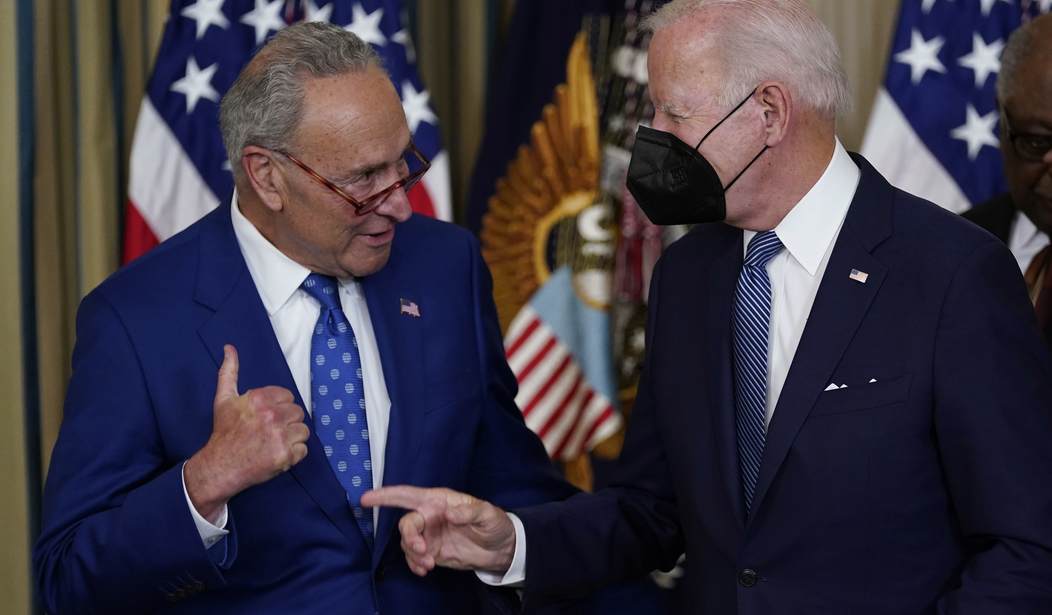Floyd Brown, founder of the Western Journal, has a seventh book out, Counterpunch: An Unlikely Alliance of Americans Fighting Back for Faith and Freedom. It’s a comprehensive overview of the most pressing political issues facing us today, with solutions for each one as well as an overarching solution — get involved at the local level where it’s much easier to make a difference.
Brown became well-known in conservative politics back in 1988, when he produced the provocative TV ad about rapist and murderer Willie Horton, which many credit with tanking Democrat Mike Dukakis’s presidential campaign. He also founded Citizens United. Brown’s lengthy experience in politics has given him knowledge and insights in this realm that few others have.
One of the themes in his book is that much of the political feuding isn’t so much Democrats versus Republicans, which have become somewhat of a uniparty, but wealthy elites versus the middle class. The elites create distractions so Americans don’t pay attention to their vast wealth transfers, such as the COVID-19 bailouts and the big bank bailouts after the sleazy 2008 economic crash. For example, the intense focus on J6 is merely to stop people from paying attention to how bad inflation is.
He pointed out that there are still 14,000 hours of footage from J6 that the government won’t release to the public, perhaps because it would show the police ushering the protesters in, and allow people to identify the undercover feds pushing the instigation. Inflation is far worse than the government is letting on. Due to the policies of the Jimmy Carter administration, it shot up to a high of 13.6 percent in June 1980. But the Clinton administration changed the way it’s measured to make the president look better. So while the Biden administration claims it’s only at 9.1 percent now, it’s actually 16.8 percent.
Similarly, CRT is a distraction from the wealth transfers; get parents fighting each other and the schools to keep their attention focused on that shiny penny. He said the environmental/climate change movement emerged in the Al Gore years since the left no longer had any issues that pulled at their base’s heartstrings, so they came up with that. They’d stolen the civil rights issue from Republicans, but as Jim Crow laws ended, the cause lost its fervor. Brown went over all the contradictions and hypocrisy in the climate change effort, such as how OPEC is funding environmentalists. He said the activists have turned on one of their most strident supporters, Michael Moore, because he produced a documentary in 2019, Planet of the Humans, which exposed the corruption and unrealistic goals of the movement.
Recommended
Brown is one of those skilled writers who actually connects the dots and gives you the full historical background behind issues and how we got to where we are, you’re not left feeling like you need to go down rabbit holes to prove something you feel is right but can’t find the resources to back it up — something no longer easy to do since Google’s algorithms bury information that is contrary to its woke position, and sadly there aren’t many adequate alternatives.
Having run Western Journal where he dealt with big tech censorship for years, Brown is superbly placed to recommend solutions in this area. He believes since the monopolies of today are more far reaching than the monopolies the government broke up in history, they’re more dangerous. They’re “vertically controlled markets” since they can keep competitors out from multiple areas, not just, say, railroads or phone service. He compared Apple’s hegemony to controlling all the roads. While some conservatives may have been hesitant to enforce antitrust laws in the past against corporations, Brown lays out a compelling argument why the “tech bros in hoodies” are no longer operating as free market capitalists but as monopolies.
Today it’s difficult for businesses in almost any area to compete with Amazon on the internet, and if they want to become a third-party seller on Amazon’s website, Amazon gobbles up much of their profits. Brown pointed out that Amazon takes in 57 cents of every dollar consumers spend online. Brown said Amazon should be split into several companies, including one that will “sell goods as a stand-alone retail platform,” and another that will “run a digital platform other merchants use to reach customers.”
Brown explains why big tech is engaging in censorship — not merely behaving as private actors acting in private capacities. He cited an article presidential candidate Vivek Ramaswamy wrote discussing a lawsuit Donald Trump filed. “The central claim in Mr. Trump’s class-action lawsuit — that the defendants should be treated as state actors and are bound by the First Amendment when they engage in selective political censorship — has precedent to back it up,” Ramaswamy said. “Their censorship constitutes state action because the government granted them immunity from legal liability, threatened to punish them if they allowed disfavored speech, and colluded with them in choosing targets for censorship.”
Brown has an eye-opening critique of the U.S.’s recent involvement in overseas wars, from Iraq to Ukraine, making a strong case against warmongering. While the U.S. Army has decreased from 711,000 active-duty troops in 1991 to 487,000, the troops have been replaced with 1,000 private companies that handle operations including fighting. He warns against the military-industrial complex, “To convince everyday Americans to support this ambitious agenda, they trumped up the global dangers we faced, they overstated the benefits their ‘global sprinkling’ could achieve, and they camouflaged the actual cost of the programs.”
The book is full of intriguing insights and solutions. Social Security can be fixed by gradually reducing the amounts provided to people who are wealthy and don’t need it. He asked, “Why are Blacks overrepresented on the athletic fields and underrepresented at high school graduations? That can’t be systemic racism at work.” Brown’s book is a must-read for anyone interested in solutions, not just catchy rants.
























Join the conversation as a VIP Member